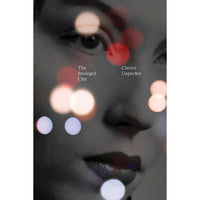- Description
At last in English, and sure to be a revelation to her fans, Clarice Lispector’s third book is unlike any of her other novels―it even has a happy ending
Clarice Lispector wrote The Besieged City in Switzerland (“a cemetery of sensations”), where her diplomat husband was posted, in 1948. “What saved me from the monotony of Bern,” Clarice stated, “was living in the Middle Ages and writing The Besieged City ... my gratitude to that book is enormous: the effort of writing it saved my life.”
Perhaps written in flight from the “shipwreck of introspection,” it is a book unlike any other in the Lispector canon, a novel about simply seeing the external world. Its heroine Lucrécia is utterly mute and unreflective. She may have no inner life.
Moreover, the plot itself is utterly unlike any other Lispector narrative: small town gal marries rich man, sees the world, and lives happily ever after.
That said, there are miraculous horses, linguistic ecstasies, catty remarks, minor characters’ visions, music from unknown sources. But centrally, there is Lucrécia, the heroine free of the burden of thought, who “leaned over without any individuality, trying merely to look at things directly.” And yet her “mere” looking leads, as Lispector’s biographer Benjamin Moser notes, “paradoxically but inevitably, to Clarice’s own metaphysical concerns. As it turns out, not being profound is simply another way of being profound.”
Author: Clarice Lispector
Editor: Benjamin Moser
Translator: Johnny Lorenz
Publisher: New Directions
Page Count: 208pp
Size: 5 x 8
Notes: hardcover
Date of Publication: April 30, 2019
ISBN: 978-0811226714


